Performance Analysis
Origin decided to lock us out of our account during testing, so we've been unable to obtain Battlefield 1 results thus far, but the remaining tests are enough to tell us what we already knew from the specifications, which is that the RX 580 is a marginally faster RX 480.Comparing this overclocked Asus card to the Sapphire RX 480 Nitro+ OC, which was one of the fastest RX 480s around, we see an average improvement of three percent, which translates to average frame rates that are 1-2fps higher in most tests. This is low, but it's to be expected, as this card's GPU only runs five percent faster than the Sapphire one, and each test will have bottlenecks to one degree or another that aren't broken by this small performance bump.
AMD says it is targeting 1440p gameplay with high settings with the RX 580, and our tests suggest that is a realistic aim. We test all our games with ultra settings, and even then only one test had a minimum that dipped below 30fps (Deus Ex at 29fps), so by dropping to high settings you can be sure that the vast majority of games will have minimum frame rates in smooth or very smooth territory.
Relative to Nvidia, the results are very game-dependent. The obvious card of comparison here is an overclocked GTX 1060 6GB, and compared to our Gigabyte sample, this Asus card is seven percent quicker in games on average. However, that figure belies a more detailed analysis. Nvidia is strongest in DirectX 11 titles, for instance, with the Gigabyte card leading in Fallout 4 and otherwise coming closest to the RX 580 Strix Top OC in The Witcher 3.
AMD makes more headway in DirectX 12 games; there's a greater delta in average frame rates in Deus Ex and Total War. Meanwhile, Vulkan performance is still very much in AMD's favour. We only have one game, Doom, to go by, but at 1080p and 1440p the frame rate is more than 20 percent ahead with this card. All told, the results suggest that if you're constantly picking up the latest titles, an overclocked RX 580 8GB is probably going to be faster than an overclocked GTX 1060 6GB, but in older titles there'll be little difference or even an advantage for Nvidia.
Of course, speed isn't everything. AMD's efficiency has come on in recent years, but a clock-speed bump like this does compromise that, and the RX 580 compares poorly to the GTX 1060 in power consumption – there's an 85W difference between the cards we tested with, despite very similar levels of performance.
More power means more heat, although to its credit Asus does a very good job of dealing with it. Then again, you'd hope so given the sheer size or this card. The delta-T of 45°C is very low (13°C less than the Sapphire RX 480), and the GPU was well below 70°C throughout testing. It also maintained its boost speed of 1,411MHz almost constantly. Prolonged load saw the fan settle at 44 percent (about 1,500 RPM), which will only really be noticeable in very quiet systems, and there's clearly thermal headroom to cap the fan speed or alter the fan curve if you want even less noise.
Overclocked, we saw scores and fps counts improve by between six and nine percent. However, it was quite a costly overclock in terms of power and noise. We saw an increase of 30W in system power consumption (352W total), and the fan speed hit a much more obvious 53 percent (about 2,100 RPM) in order to maintain the same delta-T as before. That said, you can use WattMan or other utilities to change fan behaviour to favour lower noise.
Conclusion
A GPU launch that shakes up the market this is not. The RX 580 is simply a way for AMD to take advantage of slowly improving 14nm processes and gives it something 'new' to market for users looking to upgrade from hardware that's a couple of years old or more. To be fair, it's definitely a decent choice for such users – speed, efficiency, and features will all be improved.The nudge in speed improves the RX 580 8GB's positioning next to the similarly priced GTX 1060 6GB. AMD does tend to be faster, but it's not a clear-cut victory and does depend on the game. With a starting price of £220, most partner cards should be competitively priced against Nvidia equivalents, though the green team could easily respond with a small price cut of its own. Polaris brought AMD up to scratch on features, with both sides now delivering well in areas like connectivity, variable refresh rate, and game capture/streaming. Nvidia is the clear winner when it comes to efficiency and overclocking, which could sway you, but really, just as it did before the RX 480, the mid-range GPU choice depends on how you'll be using your card and what your priorities are.
As to this specific Asus part, the cost is clearly the most off-putting factor. At the time of writing, custom GTX 1070s were available for £350, with many more in the £370-£400 bracket. With 30-40 percent additional performance in tow with that card, Asus's asking price of £320 starts to become very difficult to justify even in spite of the robust feature set, quality design, and excellent cooler. Still, if you can't stretch to a GTX 1070 and you're set on the RX 580, there's a good chance this is the best one around. The size is also potentially an issue, especially if you're upgrading in an older case instead of building with a new, more spacious one, but we still think most enthusiasts' systems will accommodate it. It's clearly a quality bit of kit, but there's ample room in the market for an RX 580 that's better balanced in terms of price. This, really, should be a £250 card.

MSI MPG Velox 100R Chassis Review
October 14 2021 | 15:04


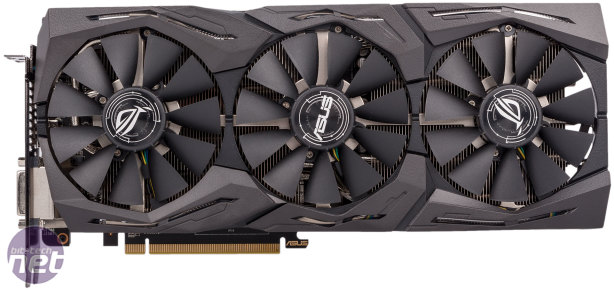
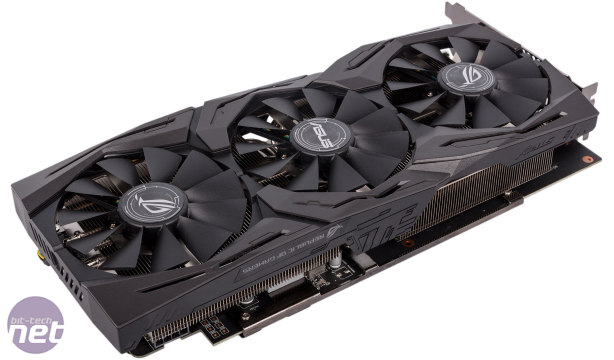
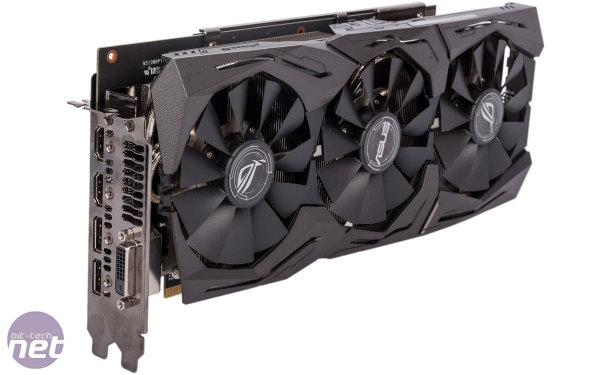
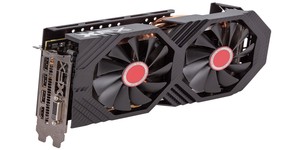
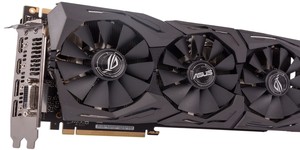
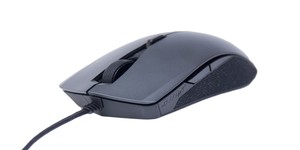




Want to comment? Please log in.